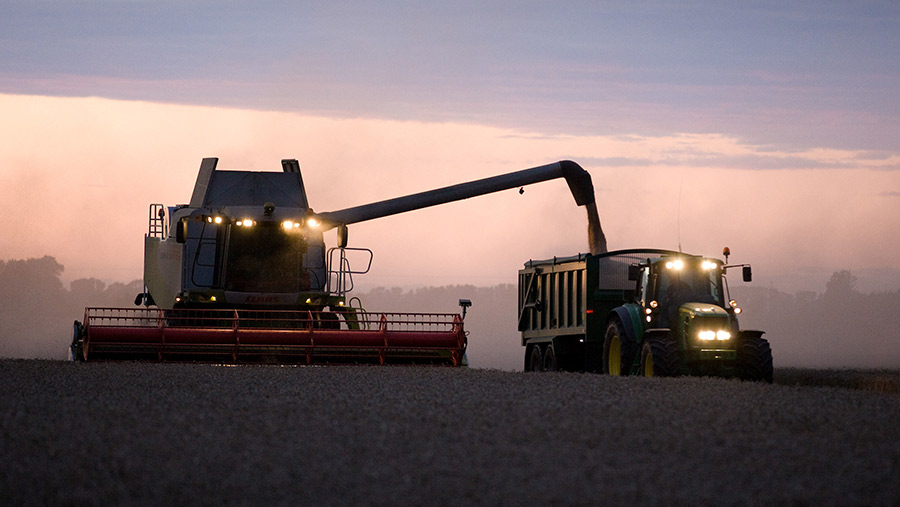Stress and fatigue key factors in farm accidents
 © Tim Scrivener
© Tim Scrivener Stress and fatigue have been identified as a key cause of farming accidents, according to a study from the University of Aberdeen.
Researchers from the university’s Non-technical Skills in Agriculture group investigated situation awareness and safety in agriculture, broadly defined as “knowing what is happening around you”.
They found that lapses in situation awareness, related to stress and fatigue, were a main contributory factor in accidents in the agricultural sector.
See also: NFU and NAAC issue pre-harvest farm safety advice
Agriculture remains the most dangerous industry in the UK, measured by fatality and injury rate, according to the Health and Safety Executive (HSE).
In the 2020-21 financial year, HSE statistics show 34 people lost their lives following accidents on UK farms, a 60% increase on the previous year and significantly higher than the five-year average.
The team will present their findings as part of Farm Safety Week (16-23 July) in a fatigue in farming webinar with the Farm Safety Foundation on Tuesday (20 July).
In the School of Psychology-funded project, lead researcher and PhD student in Psychology Ilinca-Ruxandra Tone interviewed 15 farmers from the UK and Ireland.
They were asked to describe a farming accident when they were tired or stressed, followed by several questions about their general experience of stress and fatigue in farming.
The results showed that situation-awareness lapses were present in all accidents and incidents reported, and many lapses occurred at the “perception” level, such as a failure to notice something.
Other lapses in situation awareness were described at the “comprehension” level in the form of an incorrect or incomplete understanding of the situation, such as misjudging the size of a vehicle.
Overfamiliarity
Some incidents were attributed to a recent change in equipment or machinery or overfamiliarity with existing equipment.
Writing in a blog for NFU Scotland, Ms Tone said: “Many farmers said that they were taking more risks or shortcuts and rushing to get the job done when extremely tired.
“They also mentioned that their alertness or concentration dropped and that they were aware of what was going on around them, and less able to spot when things were going wrong.
“This is something which also happens to pilots, offshore drillers, and other people who, just like you, work at the sharp end in a high-risk industry – their situation awareness or their mental picture of what is going on around them is negatively affected by fatigue.”
Raising awareness around the dangers of tiredness and stress in relation to farming accidents will be a key aspect of this year’s Farm Safety Week.
Strategies to tackle stress and fatigue in farming
For many people working in farming, the workplace is also likely to be the home, so getting away from it all from time to time can really make a difference.
Farmers in the study suggested several useful ways to counter stress and fatigue. They told researchers about a number of steps that can be taken to reduce the risk of being involved in an accident.
- Fatigue can be prevented most of the time in farming through good sleep, proper food, and relaxation.
- When feeling the first signs of fatigue, take a break. Don’t wait until you are falling asleep during the job. Take a breather, even if it is just for a short while, then return to the task refreshed and more productive.
- Even better, take a quick nap in a safe space. This is especially crucial if you are feeling fatigued while driving, as the ability to react will be impaired.
- It is important and perfectly normal to occasionally take time off – preferably to get away from the farm – even just for an hour or two. This can help you detach, socialise with friends, family and the local community, and come back to remaining jobs with a fresh outlook.
- Postpone non-essential tasks or pass these on to somebody else if working in a team.
- When working while fatigued, it is crucial to stay in touch with others, not only so you can get help in case of an emergency, but also to keep yourself alert.
